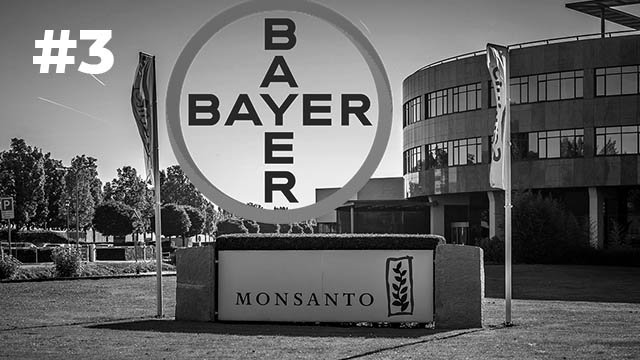 When Forbes magazine declared Monsanto as the Company of the Year for 2009, millions of surprised people were forced to reevaluate their opinions about a major corporation. Now they no longer trust Forbes.
When Forbes magazine declared Monsanto as the Company of the Year for 2009, millions of surprised people were forced to reevaluate their opinions about a major corporation. Now they no longer trust Forbes.
Monsanto is one of the most despised corporations on earth. This is the third in a series of articles that expose their not-so-hidden dark side and how, if unrestrained, Monsanto could unleash a cataclysm. Indeed, it has already started…
Part 3 of 10
Covering up health dangers
The policy Taylor oversaw in 1992 needed to create the impression that unintended effects from GM crops were not an issue. Otherwise their GRAS status would be undermined. But internal memos made public from a lawsuit showed that the overwhelming consensus among the agency scientists was that GM crops can have unpredictable, hard-to-detect side effects. Various departments and experts spelled these out in detail, listing allergies, toxins, nutritional effects, and new diseases as potential problems. They had urged superiors to require long-term safety studies. In spite of the warnings, according to public interest attorney Steven Druker who studied the FDA’s internal files, “References to the unintended negative effects of bioengineering were progressively deleted from drafts of the policy statement (over the protests of agency scientists).”
FDA microbiologist Louis Pribyl wrote about the policy, “What has happened to the scientific elements of this document? Without a sound scientific base to rest on, this becomes a broad, general, ‘What do I have to do to avoid trouble’-type document. . . . It will look like and probably be just a political document. . . . It reads very pro-industry, especially in the area of unintended effects.”
The FDA scientists’ concerns were not only ignored, their very existence was denied. Consider the private memo summarizing opinions at the FDA, which stated, “The processes of genetic engineering and traditional breeding are different and according to the technical experts in the agency, they lead to different risks.” Contrast that with the official policy statement issued by Taylor, Monsanto’s former attorney: “The agency is not aware of any information showing that foods derived by these new methods differ from other foods in any meaningful or uniform way.” On the basis of this false statement, the FDA does not require GM food safety testing.
Fake Safety Assessments
Monsanto participates in a voluntary consultation process with the FDA that is derided by critics as a meaningless exercise. Monsanto submits whatever information it chooses, and the FDA does not conduct or commission any studies of its own. Former EPA scientist Doug Gurian-Sherman, who analyzed FDA review records obtained through the Freedom of Information Act, says the FDA consultation process “misses obvious errors in company-submitted data summaries, provides insufficient testing guidance, and does not require sufficiently detailed data to enable the FDA to assure that GE crops are safe to eat.”
But that is not the point of the exercise. The FDA doesn’t actually approve the crops or declare them safe. That is Monsanto’s job! At the end of the consultation, the FDA issues a letter stating:
“Based on the safety and nutritional assessment you have conducted, it is our understanding that Monsanto has concluded that corn products derived from this new variety are not materially different in composition, safety, and other relevant parameters from corn currently on the market, and that the genetically modified corn does not raise issues that would require premarket review or approval by FDA. . . . As you are aware, it is Monsanto’s responsibility to ensure that foods marketed by the firm are safe, wholesome and in compliance with all applicable legal and regulatory requirements.
The National Academy of Sciences and even the pro-GM Royal Society of London describe the US system as inadequate and flawed. The editor of the prestigious journal Lancet said, “It is astounding that the US Food and Drug Administration has not changed their stance on genetically modified food adopted in 1992. . . . Governments should never have allowed these products into the food chain without insisting on rigorous testing for effects on health.”
One obvious reason for the inflexibility of the FDA is that they are officially charged with both regulating biotech products and promoting them–a clear conflict. That is also why the FDA does not require mandatory labeling of GM foods. They ignore the desires of 90% of American citizens in order to support the economic interests of Monsanto and the four other GM food companies.


